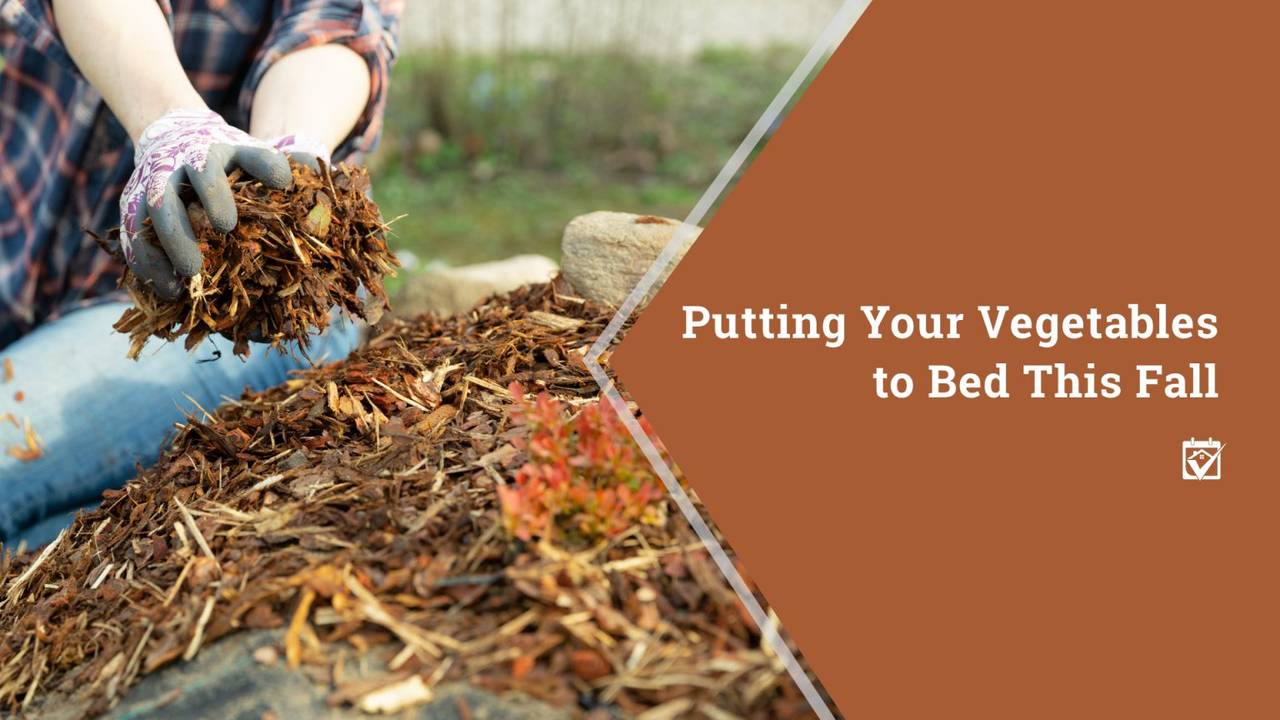Growing and tending a garden through the spring and summer can be one of the most fulfilling and rewarding of human experiences. The harvest in the early fall is simply sublime. But cleaning all that mess up? It’s much less poetry-worthy. Even so, there’s a certain art to putting the vegetable garden to bed, one that can increase your yields year after year once you’ve mastered it.
Compost, Mulch, and Cover Crops
The end of the gardening season is never pretty. Dried up plants, often broken or bent, are scattered across a once-fertile landscape in an almost post-apocalyptic scenario. It’s dark, it’s brown, it’s all kinds of heart-wrenching to know you’ve reached the end of the life cycle of your garden. But take heart! What you’re seeing is just another part of the cycle, the beginning of another stage of your garden’s life.
In the fall and winter, all the nutrients those vegetable plants used up to produce lovely vegetables and fruits have to be returned to the soil. Some of that comes in the form of spent vegetation breaking down, and some will come in the form of additives to the soil. Both work together to ensure that next year’s is a bumper crop.
There are three basic elements that can be used to bulk up an end season garden for the next year:
- Compost. Even if you grew your plants in containers this year, compost can play an important part of next year’s success in those same containers. Be sure to knock the vegetation back, and as long as it’s not diseased, fold it into the soil. That way you can recapture the nutrients left behind.
Go one step further and add the equivalent of one quarter of the depth of your container or garden spot in compost. Doing this in the fall gives your compost plenty of time to break down, releasing even more nutrients to the soil, while improving both moisture retention and drainage. To figure out how much compost you need, dig down to the bottom of your prepared garden spot or pot and stick a tape measure in. Divide that figure in inches by four and apply that many inches of soil across the top, then mix it into the garden thoroughly.
- Mulch. Much like with compost, a good mulch can help the garden retain moisture. It also helps to both protect crops you want to keep, like asparagus, and smother those you don’t want, like stray grasses and weeds. Going into the winter, you can apply up to about four inches of any plant-based mulch to the top of the soil to protect crops. Just make sure to check the crowns of those plants as spring starts so you can uncover them when they’re ready to peek back up above ground.
- Cover Crops. Some people prefer to use cover crops instead of, or along with, mulches and composts to enhance their gardens. Legumes especially help improve your nitrogen levels. If you plow them back into the ground before they flower, you can repeat this process a few times before spring planting and really bulk up the soil. There’s such a thing as too much nitrogen, but it’s difficult to reach that point with cover crops and composts alone.
In addition to these many options, gardeners also sometimes cover their gardens with clear plastic to help encourage sun solarization, a method that helps destroy pests like nematodes within the top few inches of soil. Your garden can only be solarized if it’s bare, however, so you’ll have to opt out of cover crops during the solarization period.



Comments(3)